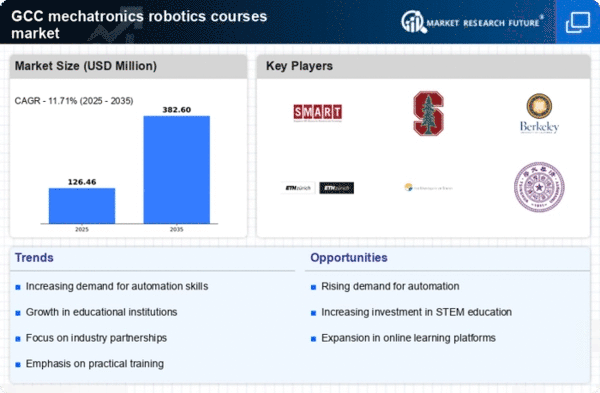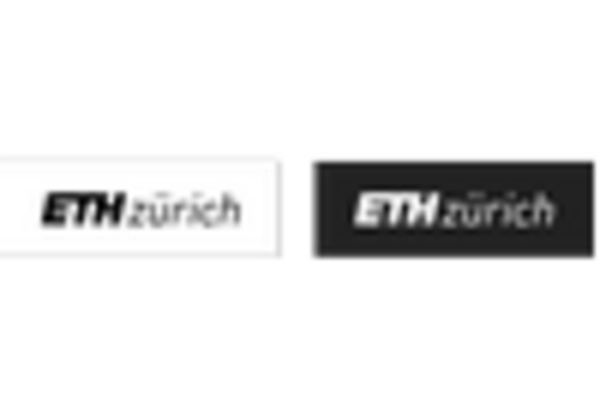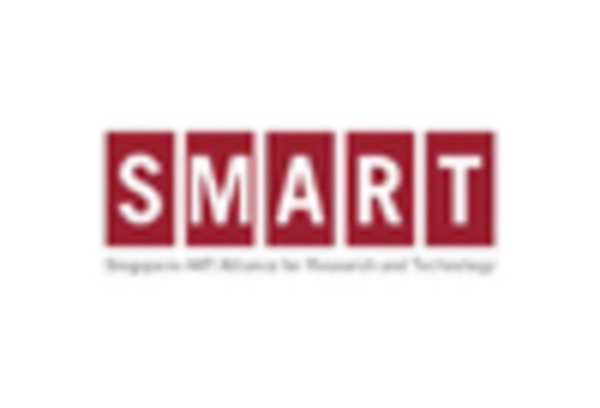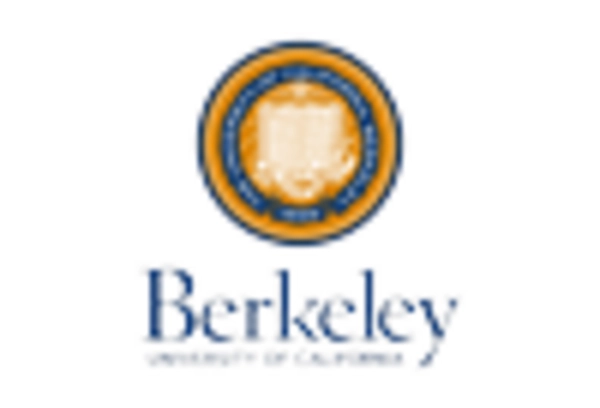Industry-Specific Certifications
The mechatronics robotics-courses market is witnessing a growing emphasis on industry-specific certifications as employers seek candidates with validated skills. Certifications from recognized organizations can enhance a candidate's employability and are increasingly becoming a requirement for job seekers in the robotics field. In the GCC, companies are collaborating with educational institutions to develop certification programs that align with industry standards. This trend is expected to boost the credibility of mechatronics robotics courses, attracting more students who are eager to enhance their qualifications. As the job market becomes more competitive, the demand for certified professionals in robotics is likely to rise, further propelling the growth of the mechatronics robotics-courses market.
Focus on Research and Development
Research and development (R&D) initiatives are becoming a cornerstone of the mechatronics robotics-courses market in the GCC. With a growing recognition of the importance of innovation, educational institutions are increasingly engaging in R&D projects that focus on robotics applications. This not only enhances the curriculum but also provides students with hands-on experience in cutting-edge technologies. Collaborative projects between universities and industries are fostering an environment of innovation, which is essential for the advancement of the robotics field. As R&D efforts expand, the mechatronics robotics-courses market is likely to benefit from a more skilled workforce, capable of driving technological advancements and meeting the evolving demands of the industry.
Government Initiatives and Funding
Government initiatives in the GCC are playing a pivotal role in shaping the mechatronics robotics-courses market. Various national strategies aim to diversify economies and reduce reliance on oil, with a strong focus on technology and innovation. For instance, the UAE's Vision 2021 emphasizes the importance of developing a skilled workforce in advanced technologies, including robotics. This has led to increased funding for educational programs and partnerships with private sector companies. As a result, institutions offering mechatronics robotics courses are likely to benefit from enhanced resources and support, fostering a more robust educational environment. The financial backing from governments may also encourage more students to pursue careers in this field, further stimulating market growth.
Rising Demand for Automation Skills
The mechatronics robotics-courses market is experiencing a notable surge in demand for automation skills across various sectors in the GCC. Industries such as manufacturing, healthcare, and logistics are increasingly adopting automation technologies to enhance efficiency and productivity. This trend is reflected in the growing number of job openings requiring expertise in robotics and automation, with a projected increase of 15% in related positions by 2027. Educational institutions are responding by expanding their course offerings in mechatronics and robotics, aiming to equip students with the necessary skills to meet industry needs. As companies seek to remain competitive, the emphasis on automation training within the mechatronics robotics-courses market is likely to intensify, driving enrollment and course development.
Technological Advancements in Education
The mechatronics robotics-courses market is significantly influenced by technological advancements in educational methodologies. The integration of online learning platforms and virtual simulations is transforming how students engage with complex concepts in robotics and mechatronics. These technologies allow for a more interactive and flexible learning experience, catering to diverse learning styles. According to recent data, the adoption of e-learning in technical education has increased by 30% in the GCC region. This shift not only enhances accessibility for students but also enables institutions to reach a broader audience. As educational technology continues to evolve, the mechatronics robotics-courses market is likely to see an increase in enrollment and course offerings, driven by the demand for innovative learning solutions.
















